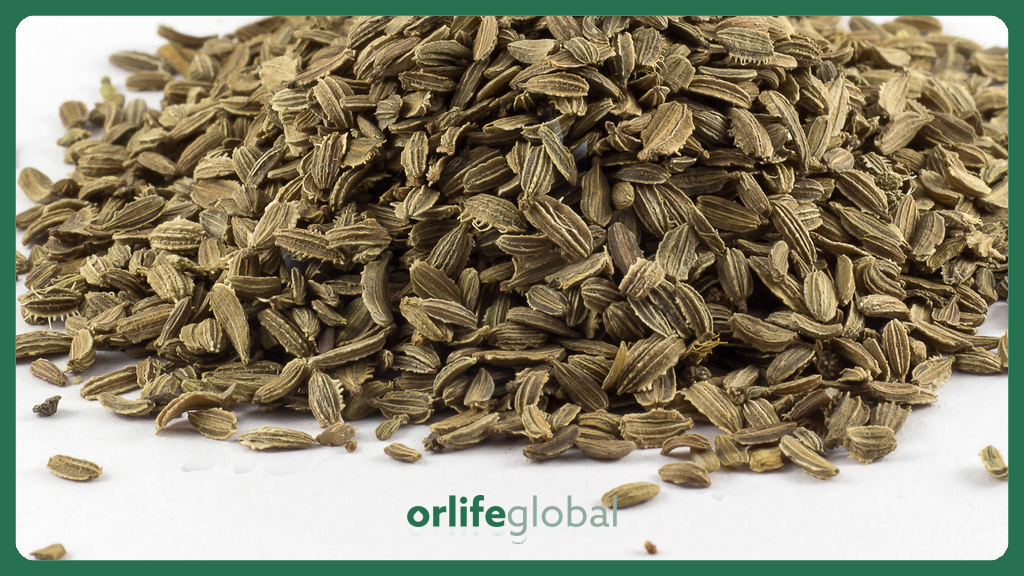
Cumin Seeds Oil
Cumin Seed Essential Oil
Originally native to the Mediterranean region, Cuminum cyminum L. is an annual herbaceous plant growing up to 15-50 cm. Cumin seeds contain 2.5-6% essential oil components [1, 2].
Cumin Seed essential oil is steam distilled from the seeds of the Cuminum cyminum L. plant. The main components of this essential oil are Cuminaldehyde, gamma-Terpinen-7-al, alpha-Terpinen-7-al, gamma-Terpinene, beta-Cymene, beta-Pinene, monoterpenes, sesquiterpenes and alcohols [2].
Cumin Seed essential oil has antibacterial, antiseptic, and antispasmodic activities. Cumin Seed has been widely used in traditional medicine to treat a variety of digestive problems. Symptoms may include bloating, diarrhea, gas, stomach pain, and stomach cramps [3].
Directions:
Anise Seed essential oil may be applied via inhalation or topically. Before using this essential oil, carefully read Warning & Safety Requirements.
To apply to the skin, do not use undiluted essential oils on your skin. Cumin Seed essential oil is phototoxic. For topical applications 0,4% or less dilution is recommended [3].
Used topically, with its potent antibacterial properties, Cumin Seed essential oil can help reduce acne by drying out any breakouts .
Used in aromatherapy, Cumin Seed essential oil is known for its calming and soothing properties
Suggested Uses:
Try adding it to a bath or diffuser as aromatherapy, or combining with different essential oils to strengthen its effect.
Use in body and skin care products to treat any kind of ache, pain, soreness, or cramp.
Warning & Safety Requirements:
- If you are pregnant or lactating, please consult with your doctor before using any product containing essential oils.
- For external use only.
- Can cause skin irritation, avoid contact with eyes and mucous membranes.
- Not suitable for children.
Storage Conditions:
Store oils in a cool dry place away from direct sunlight and out of reach of children.
References:
- [1]. Ceylan, E., Özbek, H. Ağaoğlu, Z. Cuminum cyminum L. (Kimyon) Meyvesi Uçucu Yağının Median Lethal Doz (LD50) Düzeyi ve Sağlıklı ve Diyabetli Farelerde Hipoglisemik Etkisinin Araştırılması. Van Tıp Dergisi: 10 (2):29-35, 2003.
- [2]. Boughendjioua, H. Characterization of Aroma Active Compounds of Cumin (Cuminum Cyminum L.) Seed Essential Oil. Mod Appl Bioequiv Availab 4(2): MABB.MS.ID.555634. 2019.
- [3]. Tisserand & Young Essential Oil Safety, 2nd Edition Churchill Livingstone Elsevier. Edinburg 2014.
CONTACT NOW


